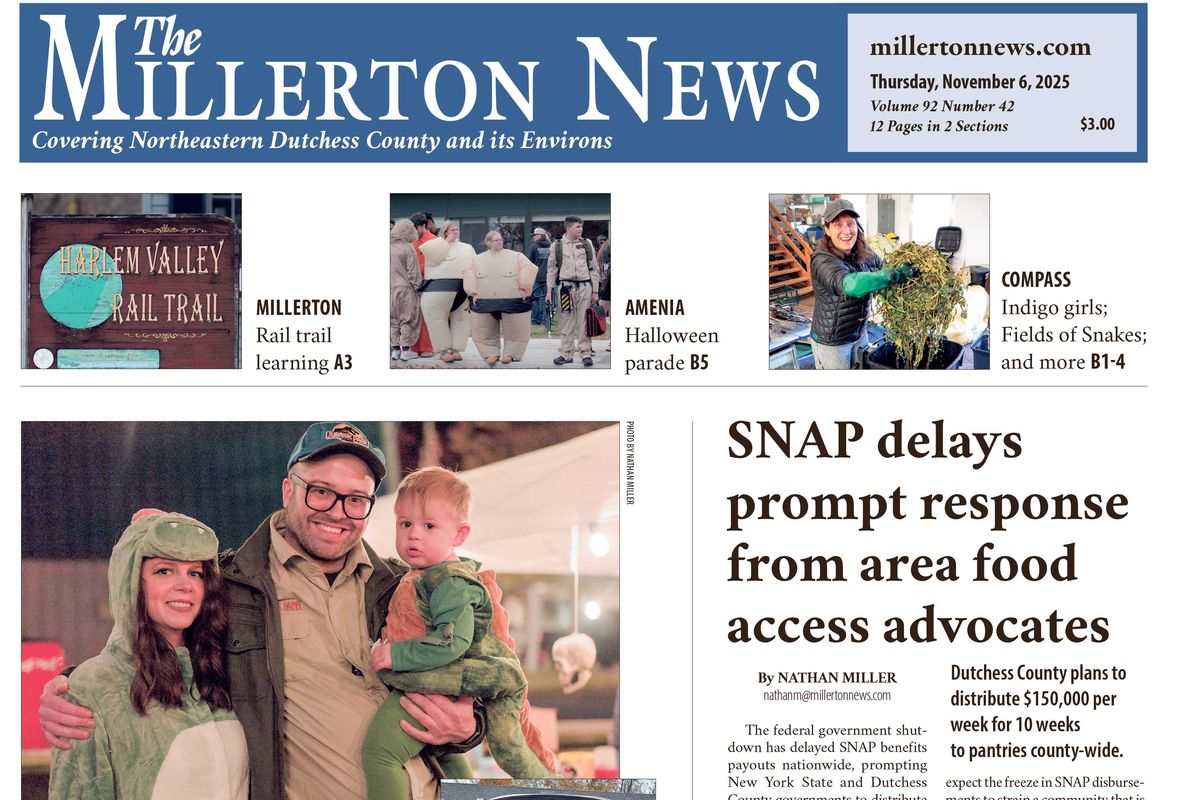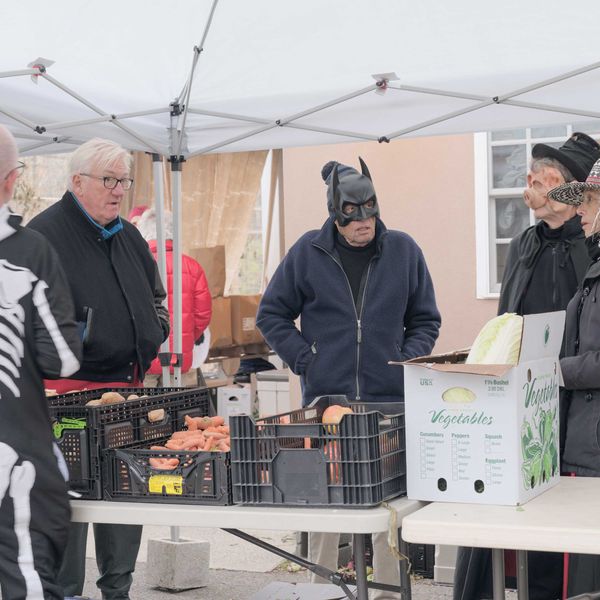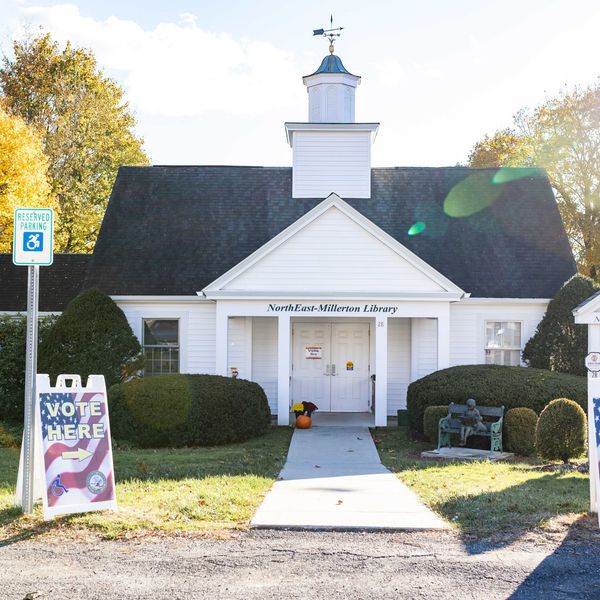Salisbury Forum panel examinesregion’s vexing ‘healthcare crisis’
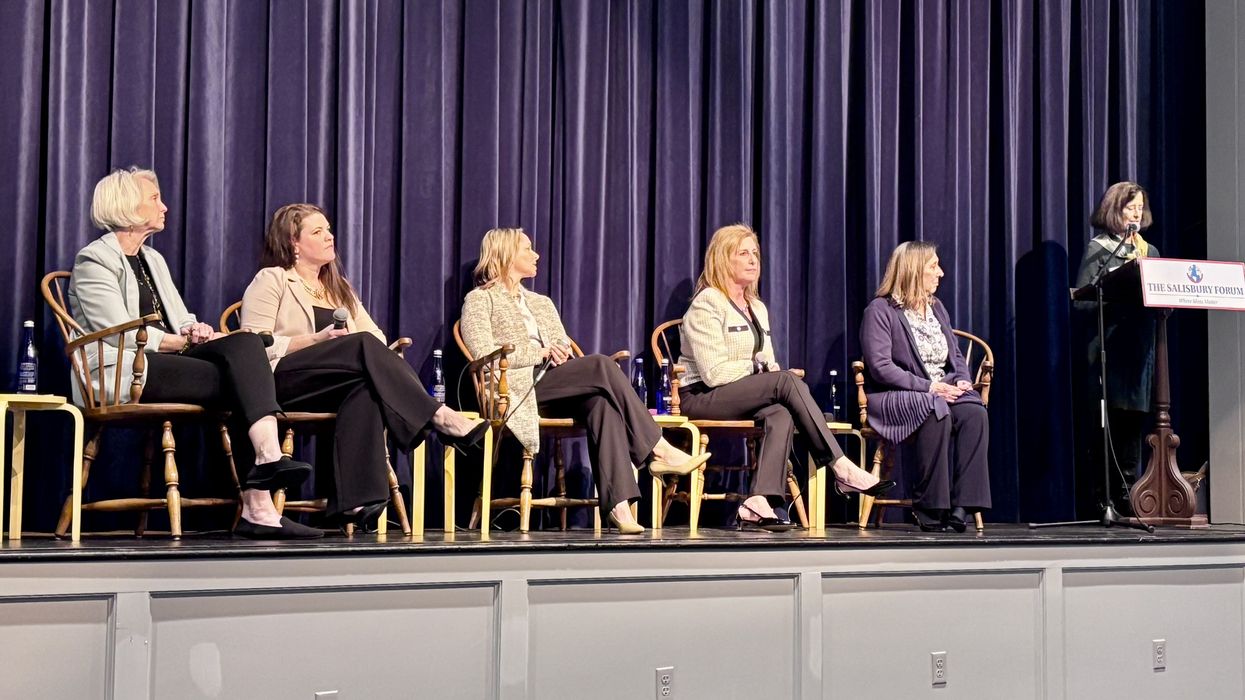
The panel at the Salisbury Forum March 21 included, from left, State Rep. Maria Horn, D-64, SVNA Home Assistance Director Meghan Kenny, Sharon Hospital President Christina McCullough, Community Health and Wellness Center CEO Joanne Borduas, Foundation for Community Health President Nancy Heaton and it was moderated by Salisbury Forum President Patricia Jenny.
Alec Linden
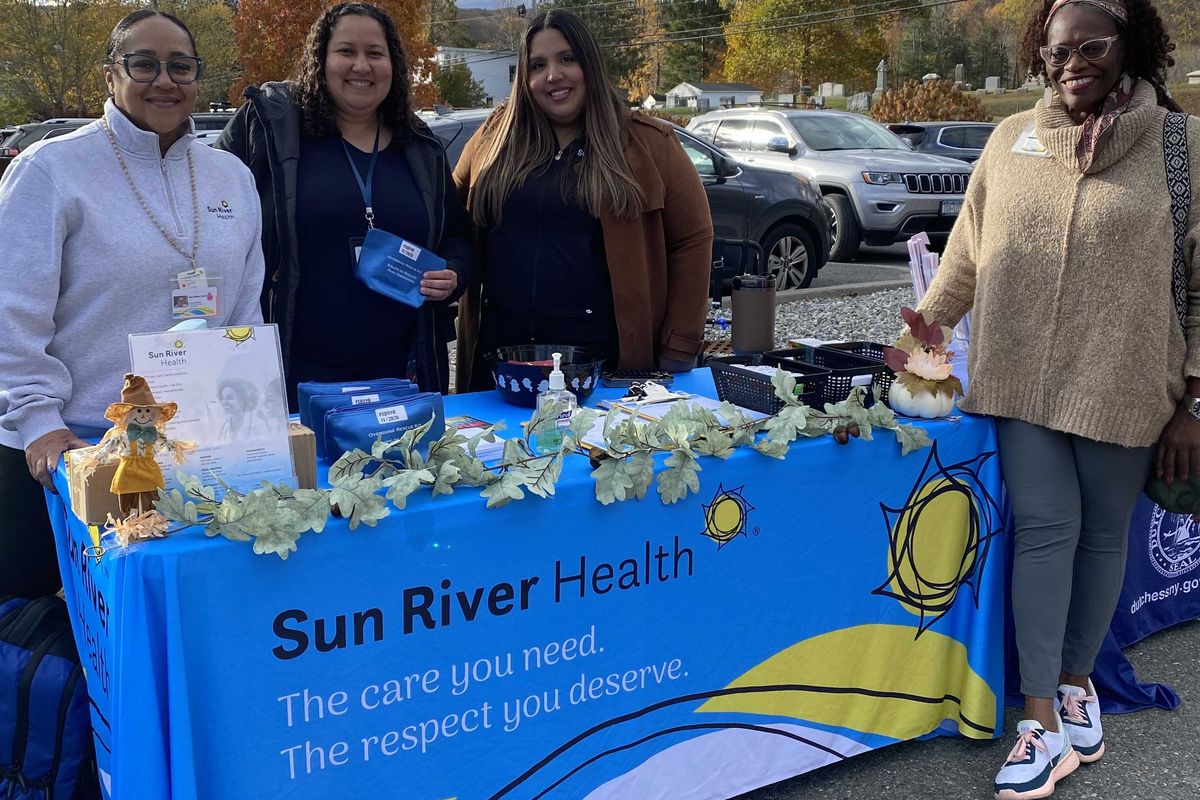

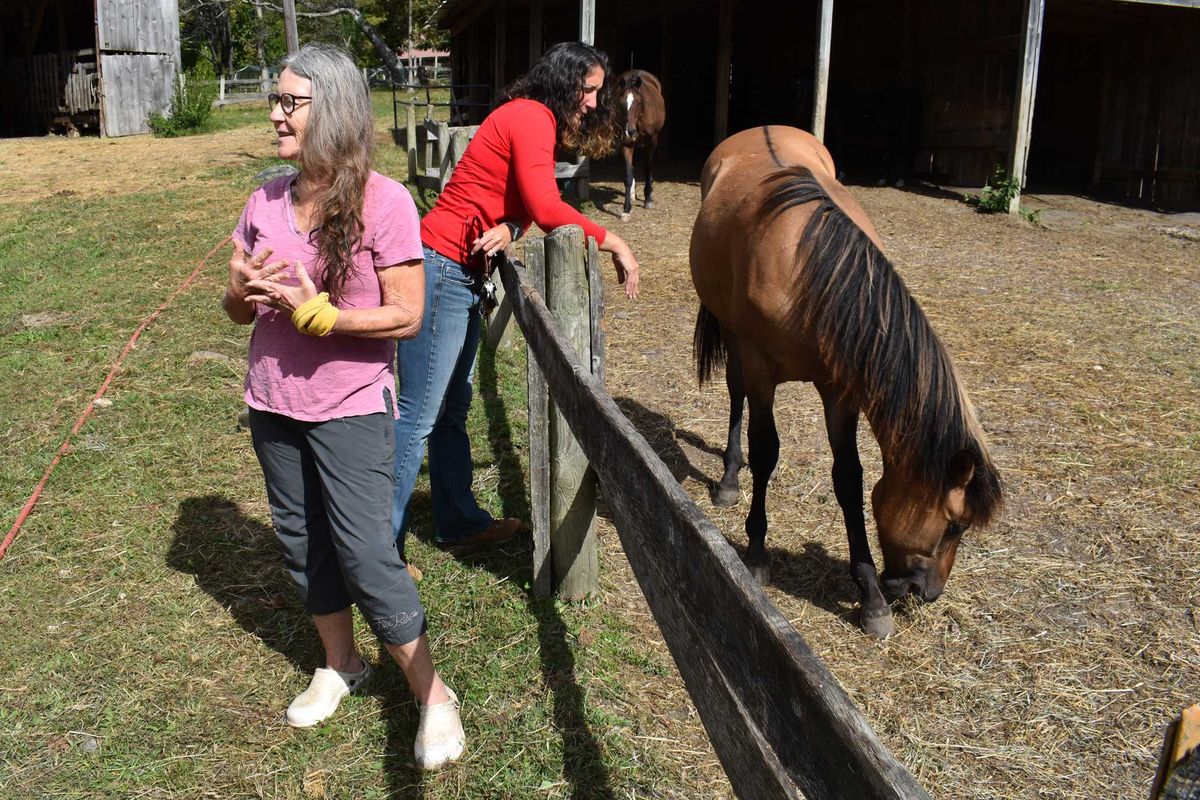

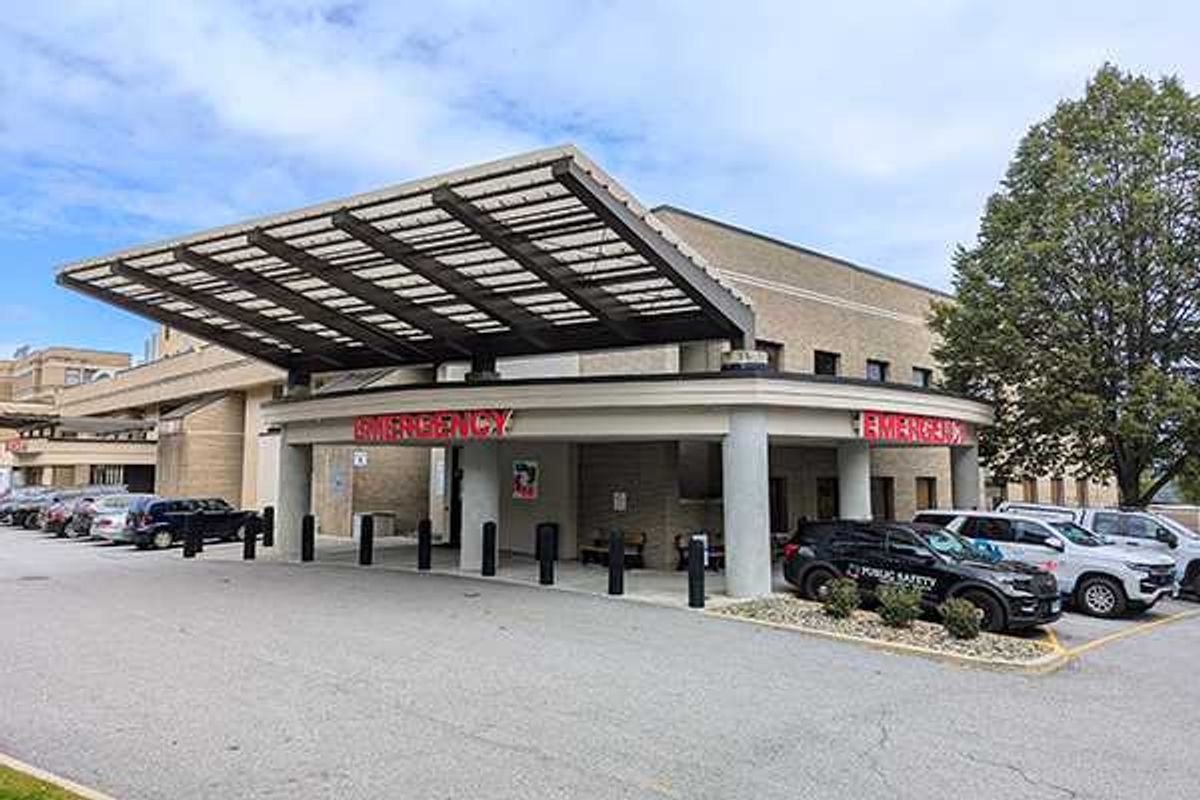
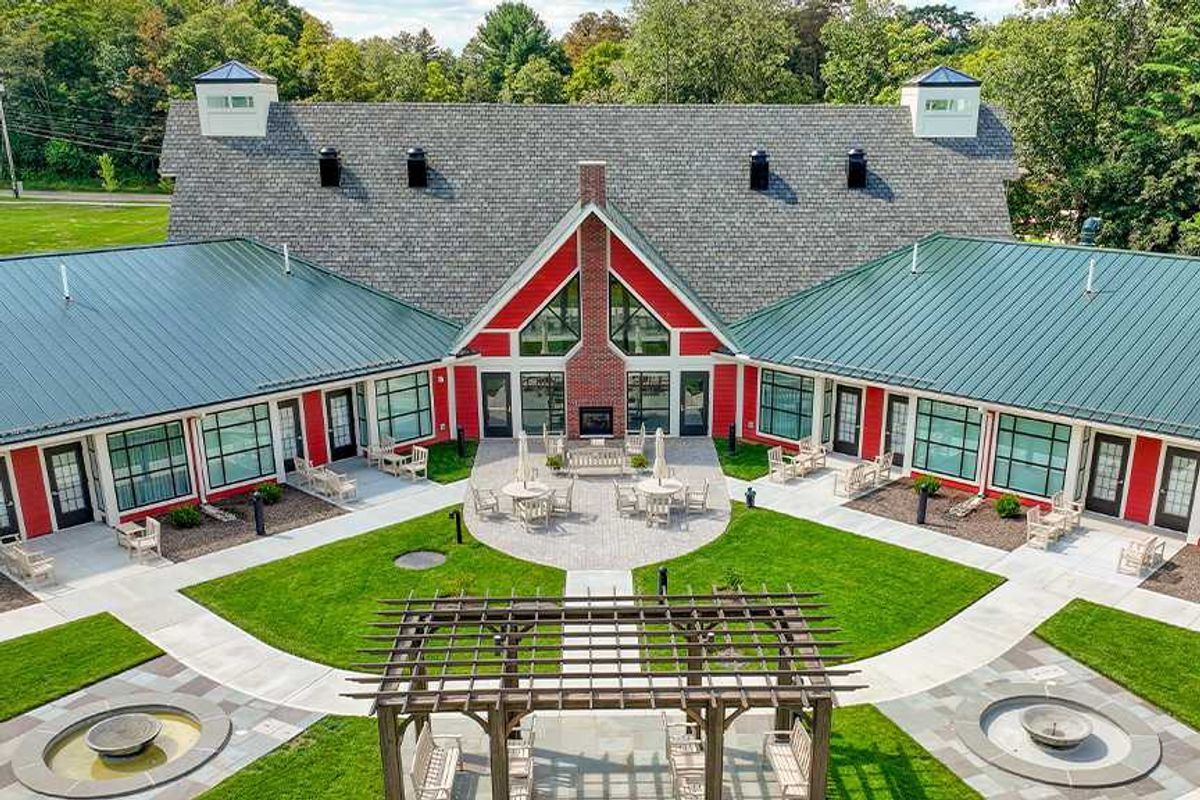
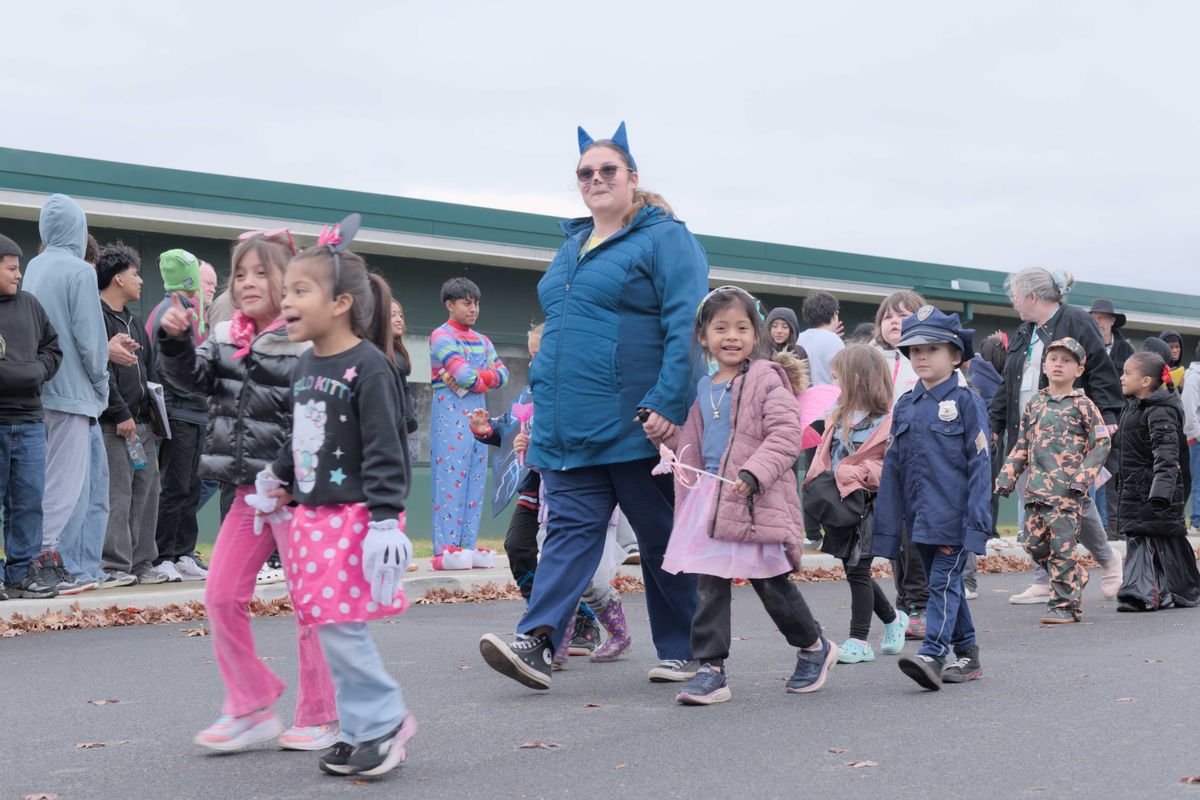
 Webutuck High School social studies teacher Kevin Kleespies let students pet his bear steed as they passed.Nathan Miller
Webutuck High School social studies teacher Kevin Kleespies let students pet his bear steed as they passed.Nathan Miller